Foreign media seem to have had a spot of trouble dealing with South Africa’s recent election, since it was so different from so many other electoral moments in the world. In years gone by, for instance, elections in Latin America often used to pit one mob named something like the “Radical Revolutionary Centrists” against another one labelled the “Liberal Democratic Socialist Conservatives”.
The leadership of the two parties often came from the same socio-economic class (and sometimes even from some of the same extended families) so that an election resembled a potentially explosive family feud at dinner, more than an uplifting moment for civic choice. That is, until the choices became like struggles between the old leadership cadre versus bands of young, bearded, radical socialists holed up in the mountains. At that point, the results increasingly depended on ordnance. When such government changes were in the air, foreign correspondents would descend on a country like a murder of crows, eager for the scent of the next big story.
Then there were places like The Philippines, where for years the usual story and headline about an election would speak of the standard violence in which dozens of campaign workers and innocent bystanders would die as events sorted themselves out. (Usually, the word “only” would be inserted between the number of fatalities and the word “killed”.) In yet other Third World nations, an election would draw the gendarmes, the militia, and the army out from their respective barracks (as in the most recent election in Benin), along with the inevitable tanks stationed at traffic circles, the erection of street barricades, and a capital in lockdown. Then would come the rioting, burning, and looting, amid charges and countercharges of wholesale voter fraud and appeals to the international community to do something.
These were the standard storylines, unless the narrative was from a people’s dictatorship where 101% of eligible voters had, yet again, picked a Great-Dear-Young Leader to guide the fortunes of the nation. In somewhat less tyrannical regimes, the opposition would sometimes boycott an election (as in Venezuela), amid charges of wholesale voter suppression, or the prevention of any campaigning by the opposition or access to broadcast media, thus rendering the election as fundamentally flawed as an act of free choice by the people.
In a place like America, meanwhile, the angry lament by some critics is often about the power of money – with politicians tied to big business and powerful special interests – so that the election might be largely free and fair, but still represent a version of the endless, closed circulation of the members of the power elites in and out of formal office. Periodically, in that critical view, grassroots, populist movements can erupt, but their energies are drained away so that what may have begun as a revolt against a nation’s political masters ends up looking more and more like the final paragraphs of George Orwell’s Animal Farm, and less and less like the thoughts and aspirations contained in The Federalist Papers.
And so, what to make of South Africa’s just-concluded election? Where does it fit on this typology? By the more apocalyptic standards described above, the results in South Africa’s voting represented an anti-climax, and the international press had few narrative handholds, given the virtually preordained results. Yes, there was a small number of attempted cases of fraudulent double voting; there were a few examples of voting station equipment failures (but not at the level of that miserable 2000 election in America); and a few cries of “We’ll see you in court!” by the representatives of some of the new, small parties whose vote totals were the rounding errors in the overall electoral field. But the processes of the polling, the counting and the announcement of results largely have been an example to the rest of the world.
For much of the foreign media, the key pending questions were:
-
How much the electorate would punish the ANC for its flaws, venality, and criminality during the Zuma years;
-
How much would voters be prepared to give Cyril Ramaphosa a mandate separate from his party for the needed reforms;
-
How successful the DA could be in wresting the country’s industrial and economic heartland of Gauteng away from the ANC; and,
-
How far would voters drift towards parties selling competing brands of ethno-populism – and away from the two largest parties?
Taken as a whole, these questions seem barely to have stirred most of the international media very much. And, it must also be said, this election did not stir the country’s electorate all that much more, given that only about half of the total eligible population bothered to register for the election and – then – actually cast their votes.
In looking forward to the election, then, most foreign media elected to round up the usual suspects in writing about South Africa. Just before the election, in its scene-setter, the left-wing American magazine, The Nation, chose to go with how South Africa’s left and labour movements had lost their best, and maybe their last, chance to seize the commanding political heights in the upcoming election.
As its article explained:
“Under other political circumstances, the ruling ANC party would be in trouble as it heads into the May 8 presidential election. Last year, the economy grew by only 0.8 percent and at one point dipped into recession for the first time since 2009. Unemployment slightly improved last year but remains stubbornly high at 27.5 percent. The previous ANC president, Jacob Zuma, resigned amid corruption allegations and factional battles.
“The ANC, the anti-apartheid liberation movement turned political party, has ruled South Africa for the past 25 years. But these days it is more tolerated than loved. While the ANC has maintained its leftist rhetoric, it has left unchanged much of the economy it inherited from the apartheid era and has allowed public services to falter. Poor and young people are especially fed up. Yet the left has never mounted a serious electoral challenge. Since the end of apartheid in 1994, the ANC has dominated South African politics, and is expected to win again this month.”
Numerous stories in other publications around the world chose to narrate how Nelson Mandela’s promised social and political revolution and the world’s admiration for him and his country has been frittered away by those who followed him in office – until a nadir had been reached with former president Jacob Zuma and his court of hangers-on, flatterers, con artists, incompetents, and outright thieves. And not to be forgotten in such depictions, there was also the oleaginous Gupta clan, featured in virtually every essay, article or book about South Africa’s fall from grace.
Other leading publications such as The New Yorker focused on the issue of land and landlessness, one of the presumed key generators of the growing discontent on the part of the country’s black majority. As their article’s title and lead-in proclaimed, “Who Owns South Africa? A fiercely debated program of land reform could address racial injustice—or cause chaos.”
And all this, of course, has led to the big kahuna of narrative angles for international media, the obvious, true, shameful, and deeply alarming – but by now commonplace – observation that the vast divide between rich and poor, and the world’s highest Gini coefficient of income inequality, are a surefire recipe for future, deep social and political trouble.
Most vivid of these pre-election stories, perhaps, was a Time magazine cover story, “The World’s Most Unequal Country”. For many, perhaps most South Africans, this story, coming within two weeks of the election, was a shameful truth put on display to the entire world. The cover photo, taken by a drone flying along the R29 highway to the east of Johannesburg – an image of the Germiston neighbourhood of Primrose across from the informal settlement of Makuase – thus became a vivid, deeply shocking image of riches, cheek by jowl with poverty and squalour.
As an aside, however, the actual image was not quite what it seemed, as the seemingly vast houses on the one side of the road were actually a municipal fire station and swimming pool, and a small factory, while the informal housing was a relatively new settlement (perhaps partially populated by recent immigrants), built on abandoned land adjacent to a played-out gold mine and its associated mine tailings.
Primrose is, in fact, a distinctly lower middle-class area, a substantially racially mixed neighbourhood of modest houses – albeit bigger than the shacks. Together with famed local photographer Oscar Gutierrez, the author had used Google Earth to identify the actual location of the image, and then Gutierrez visited himself for a closer look.
Photographer Oscar Gutierrez on the ‘Time’ magazine cover:

Gutierrez writes: ‘Time’ magazine’s latest cover, an image of Germiston’s suburb of Primrose and the informal settlement of Makause, may look like a metaphor for SA’s inequality. But it’s misleading: the ‘houses’ opposite the informal settlement are in fact a fire station, a municipal swimming pool, a bus depot and a factory. And when I went there on voting day, it seemed Time’s image was photo-shopped to make Primrose a lot greener and richer than it is in reality. I took some different images and frankly, the reality is even more disturbing than Time portrays. For example, Makause is next to an old mine dump — health hazards are obvious. As a photographer this bothers me. Our reality in SA is desperate enough without having to mislead viewers to make a point.
Still, the grim realities of this country’s divided social, economic, and political landscape are sufficiently brutal that this division inevitably became the template for numerous other pre-election wrap-ups.
 Primrose is a distinctly lower middle class area, a substantially racially mixed neighbourhood of modest houses – albeit bigger than the shacks. Together with famed local photographer Oscar Gutierrez, the author had used Google Earth to identify the actual location of the image, and then Gutierrez visited himself for a closer look, as the rest of the images in this story show.
Primrose is a distinctly lower middle class area, a substantially racially mixed neighbourhood of modest houses – albeit bigger than the shacks. Together with famed local photographer Oscar Gutierrez, the author had used Google Earth to identify the actual location of the image, and then Gutierrez visited himself for a closer look, as the rest of the images in this story show.
But for many, perhaps the most startling pre-election story was the leader on the front cover for the 27 April edition of The Economist, endorsing Cyril Ramaphosa, and thus his party, for the upcoming election. This declaration was denounced by a variety of DA politicians, and it read”
“The Man Madiba Wanted: There is a big risk that none of this [real reforms] will happen, that the ANC has grown so rotten that no one can reform it. However, Mr Ramaphosa’s record so far suggests that he is more likely than anyone else to accomplish what is necessary. South Africans cannot afford for him to fail; nor can the rest of Africa. Despite the wasted Zuma years, the rainbow nation still has the continent’s most sophisticated economy, vibrant civil society and feisty media. Having overcome apartheid without a civil war, it has long been an inspiration to the world. All this is now in jeopardy, but Mr Ramaphosa, the man Mandela originally wanted to succeed him, has a chance to save his legacy. He must not blow it.”
Post-election, the same publication described the result, a near loss by the ANC of Gauteng and a diminished national majority for the ANC, as “a fragile centre holds in South Africa. The ANC is re-elected but without much enthusiasm.”
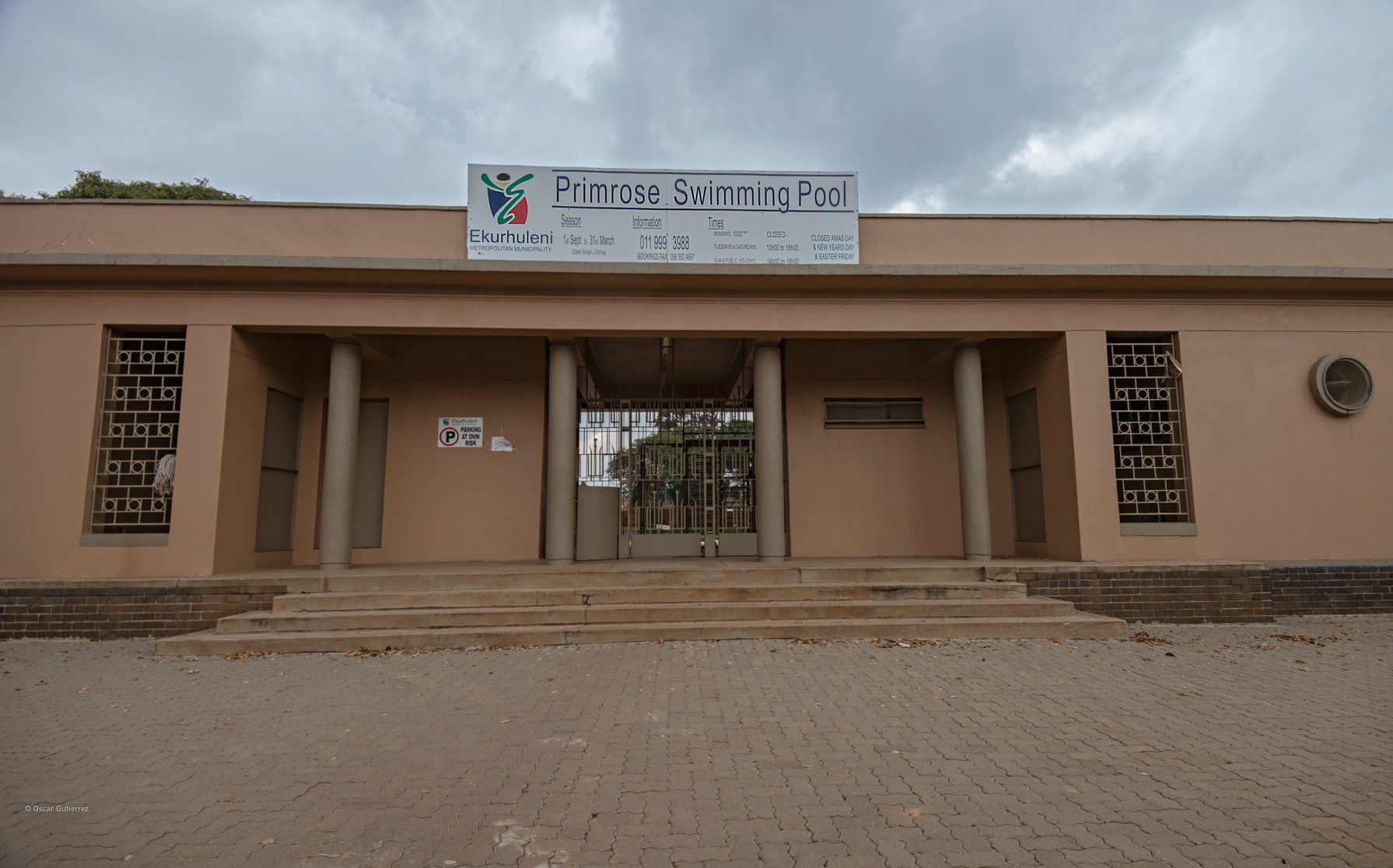
Meanwhile, Russia’s RT network, in a snarky “we told you so” approach, noted:
“The ANC has yet again won a majority in South Africa’s general election despite its disastrous record, killing hope that the country will turn in the right direction. And the West must stop pretending this is just a glitch. What’s wrong with the country that went to the polls on Wednesday to vote for a new National Assembly goes well beyond the hard facts – unedifying as those are.
“It’s not that half the population lives in absolute poverty, that more than a quarter of adults are unemployed, or that the country has yet again been declared officially the most unequal in the world. Nor is it the economic growth rate that has stagnated at below a two percent average for a decade, as the rest of the world recovered from the global crisis, or the regular blackouts, the violent crime rates, or that one in five adults is infected with HIV.
“Rather, the story since 1994 is of a country being given a historic chance to show the way to prosperity and democracy for Africa – and failing to take it, exactly as the pessimists predicted....
“Merely linear development in the past 25 years would have put South Africa on par with the more prosperous parts of South America and mid-ranking Eastern European states, which had just as big a transformation to deal with.
“Perhaps it is cause for celebration that the country has not disintegrated into the worst clichés about African strongmen and kleptocracies. But in a way, the slow ebb is even worse: South Africa feasted on its Boer legacy for the first few years, but with each passing year now it only falls further behind.”
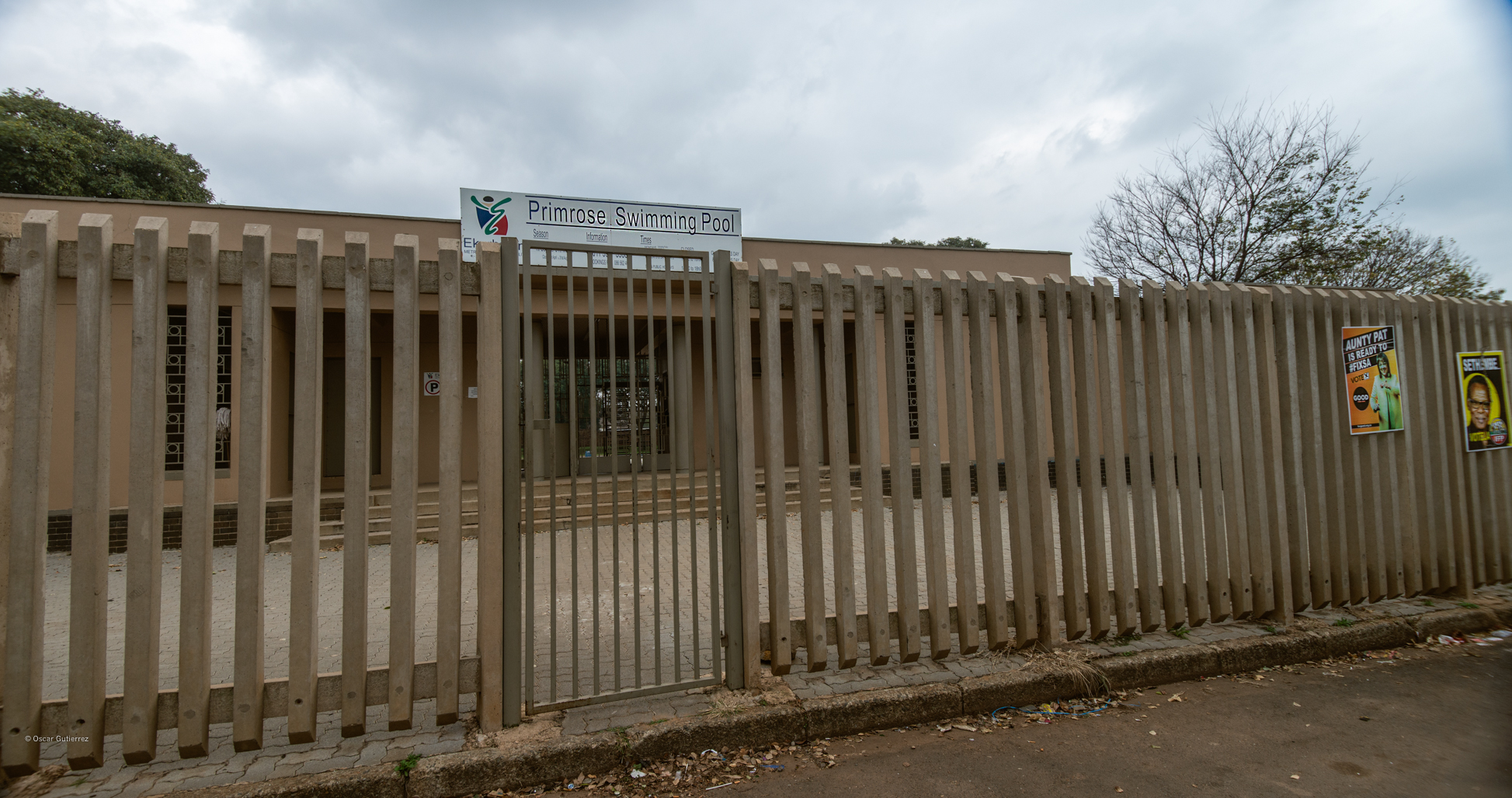
In the media around Africa, for example, The News of Nigeria argued:
“Pulling through its worst performance in 25 years the African National Congress (ANC) wins last week’s elections, underscoring a full term for Cyril Ramaphosa in a Pyrrhic victory that casts a slur on its reputation.... Ramaphosa, seen as an ally of big business, is called ‘Ramaphoria’, underpinning the euphoria that saw his emergence as president in 2018, which may now have become extinguished with his seeming prevarication.”
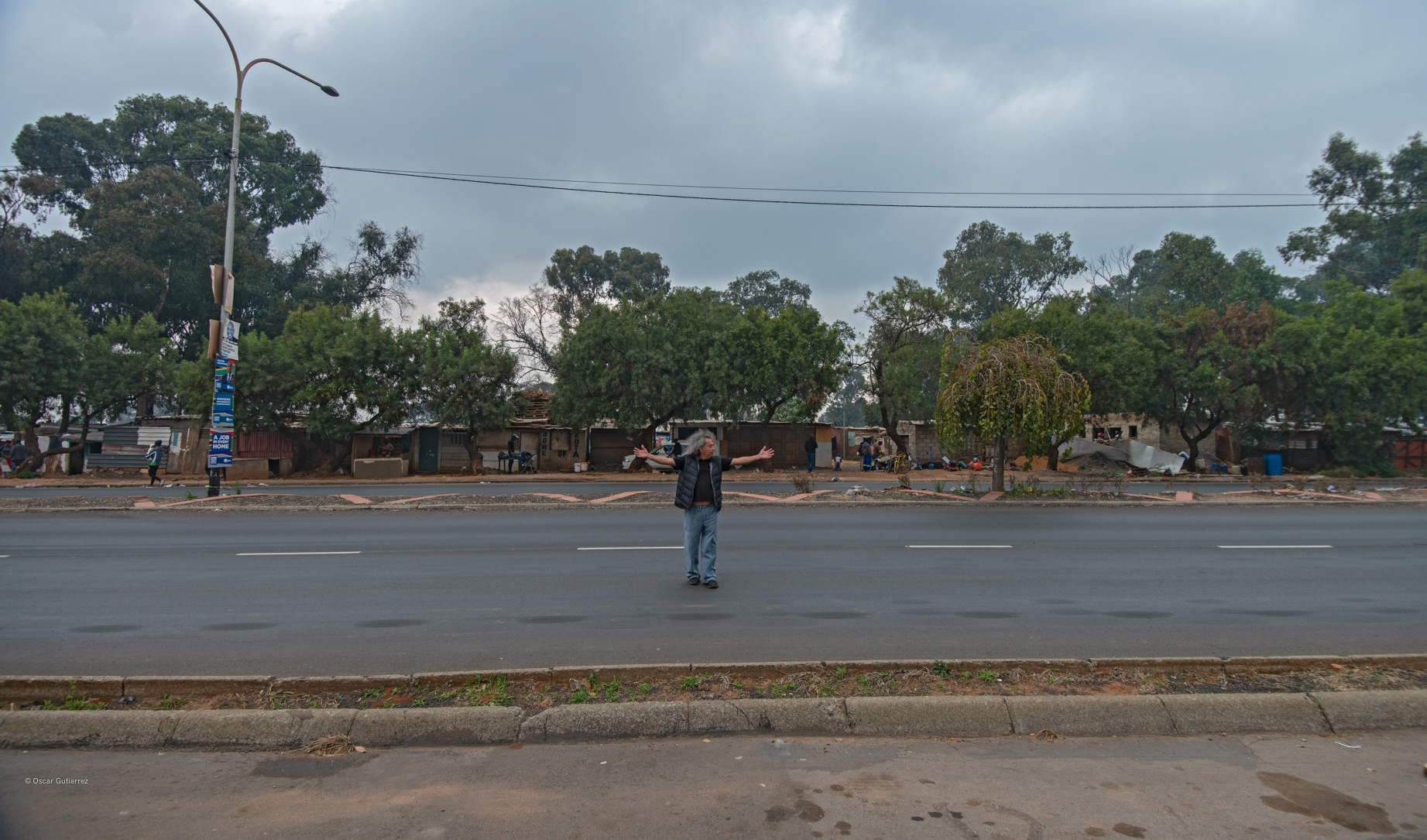
And a name familiar to many readers of Daily Maverick, Sisonke Msimang, wrote in The Washington Post after the results were final:
“... The mood as South Africans took to the polls to elect the ANC and leader Cyril Ramaphosa this week was distinctly less dramatic [than the elation of 1994]. Millions of eligible voters did not even bother to turn up at the polls. And many of those who did cast their votes seemed to focus on choosing the party they believed would do the least damage. How else does one explain an electoral win of more than 57 percent by a party that has presided over a more than $70-billion loss in economic growth and 2.5 million fewer jobs than possible over the last decade?
“The ANC’s core campaign strategy was to confess to its sins — of which there are many. As senior leaders crisscrossed the country in campaign mode, they apologised and promised not to make the same mistakes. Voters seem to have accepted their apologies. The ANC outpaced the next-biggest party, the Democratic Alliance, by almost 3 votes to 1. The Economic Freedom Fighters, led by the charismatic Julius Malema, did well to secure nearly 11 percent of the national vote, though this was still a distant third.
“... Now that the job is officially his for the next term, the honeymoon must end. On paper, Ramaphosa is the perfect candidate for the clean-up job. He has projected himself as an outsider, the ideal person to lead because he ostensibly has an arm’s-length distance from corruption. In reality, Ramaphosa is the ultimate insider.
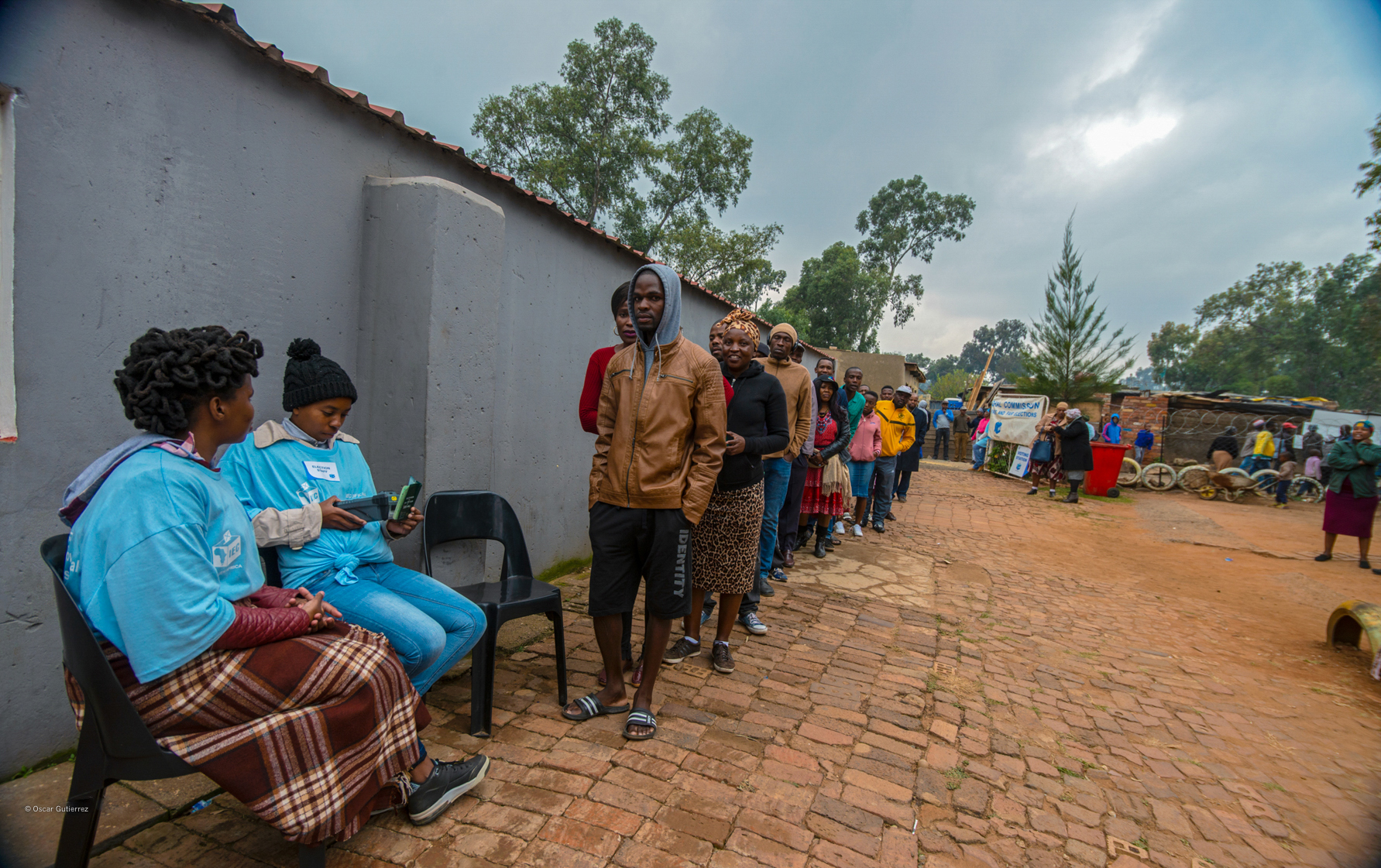
“... Today, Ramaphosa continues to be widely respected in business circles. He has been credited with inspiring investor confidence and convincing ratings agencies that the country’s political situation is stable. In Marikana, however, many community members remain angry and Ramaphosa has not visited the area despite calls for him to express his contrition in person.
“The gap between these communities — the captains of industry on the one hand and the widows and families of the miners killed in Marikana on the other hand — is large. South Africans are hoping Ramaphosa can bridge the gap. Yet he may be too deeply enmeshed in one group to be able to transcend the very divides he is supposed to help his compatriots navigate.
“But as a president who now has a clear mandate, he will have to learn how to do this. If he can muster the courage to bite the hand that has fed him, South Africa’s new president will have a fighting chance at being a leader for all his citizens.”
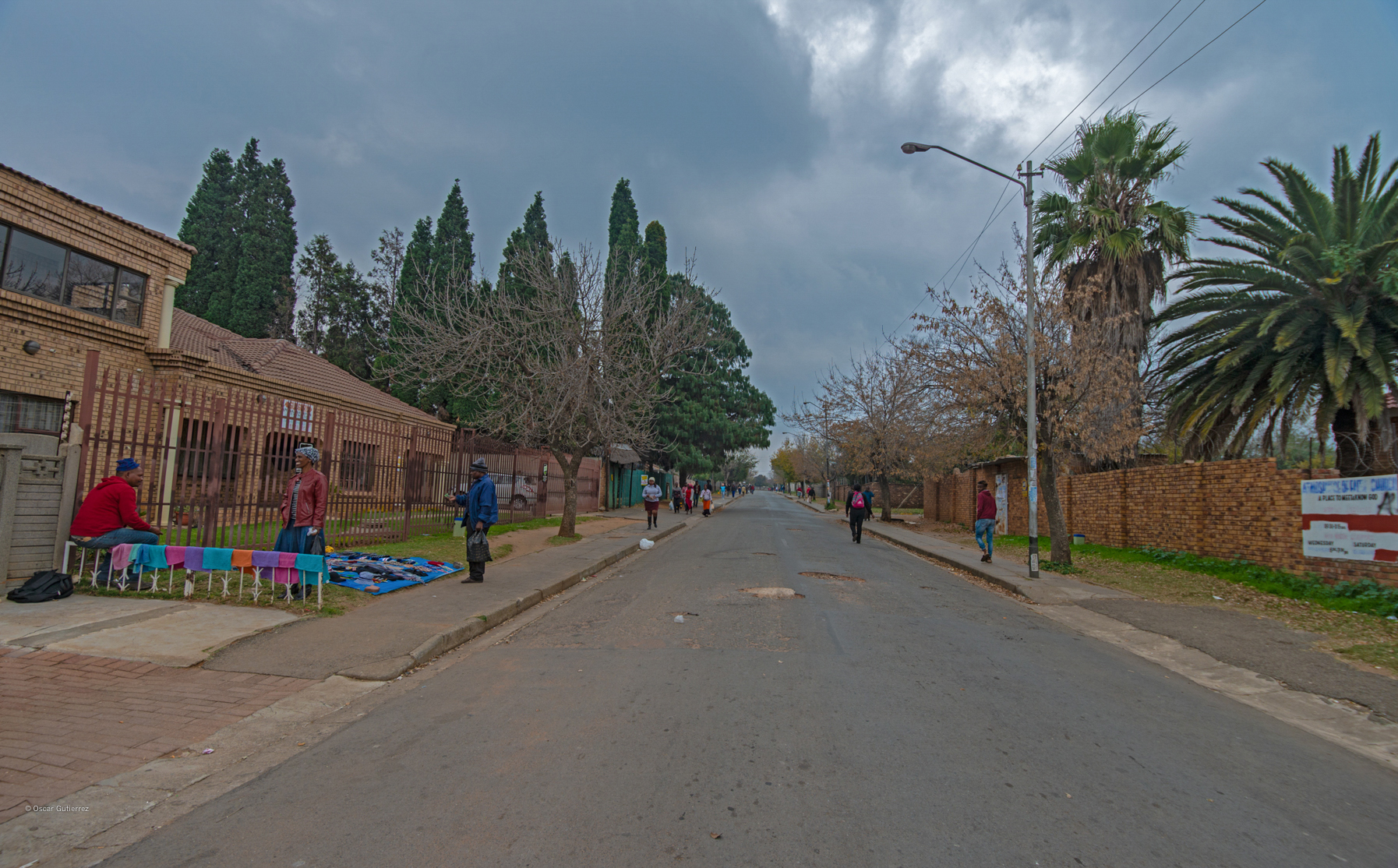
To that point, Mike Davies, founder of political-advisory company Kigoda Consulting, told Bloomberg News:
“Ramaphosa’s popularity, particularly among constituencies that were deserting the party under Zuma, appears to have played a major role in convincing voters to give the ANC another chance. Ramaphosa’s promises to address corruption, jobs and inequality have resonated amid ongoing voter skepticism of what opposition parties offer.”
Meanwhile, in an informal, anecdotal poll of voters in the author’s own distinctly middle-class Johannesburg suburb, an interesting mix of older voters, long-time supporters of the DA and its pre-1994, anti-apartheid predecessor parties, told us they had voted for the DA in Gauteng at the provincial level, but that they had given their votes to Ramaphosa at the national level, even if they had to hold their collective noses over the miasma of his party in order to do so.
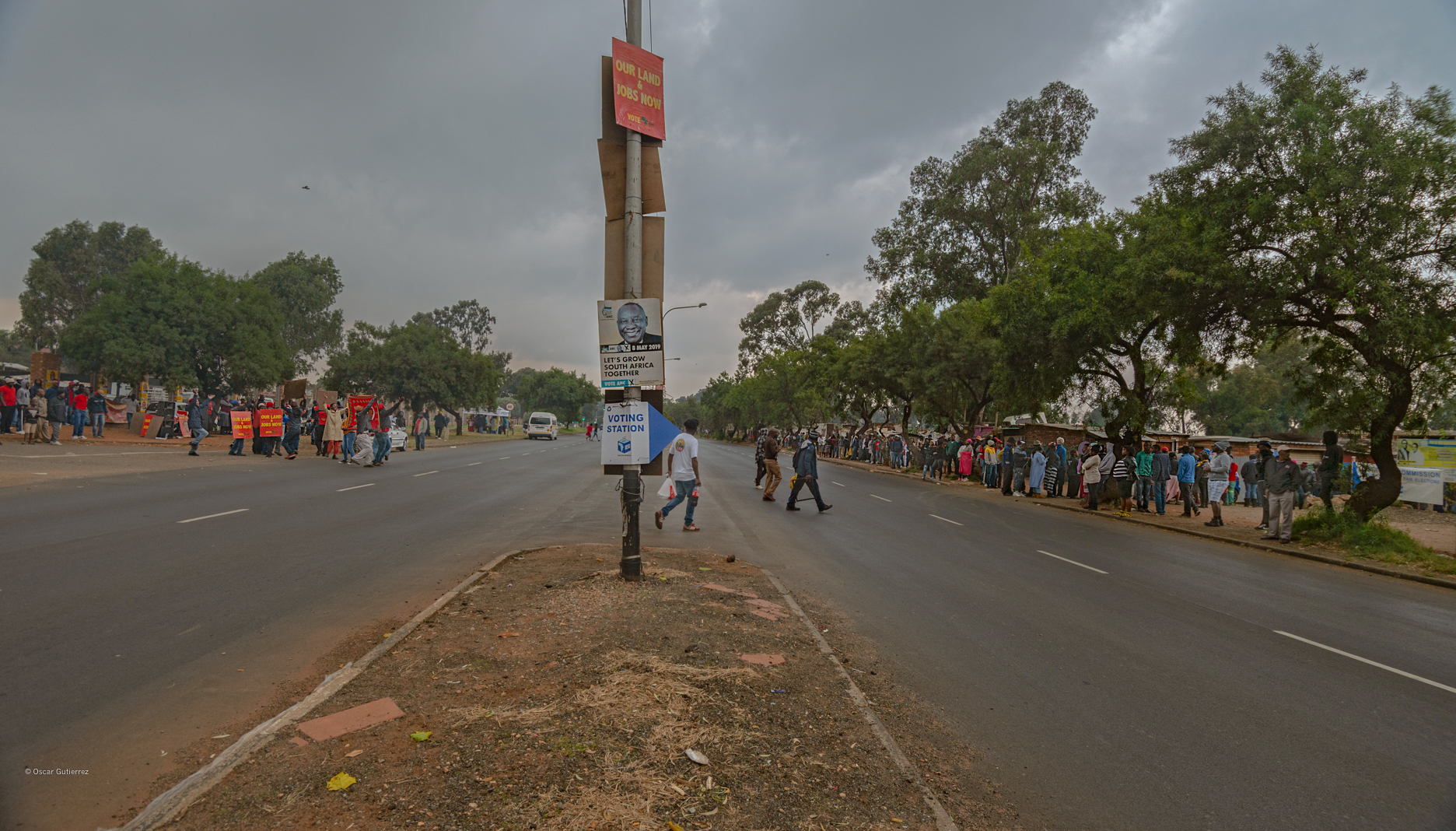
With the results now in, the next stories will inevitably look at whether or not Cyril Ramaphosa is successfully taming the fierce dragons of his party, in addition to moving to address the many problems that face the nation as a whole. DM




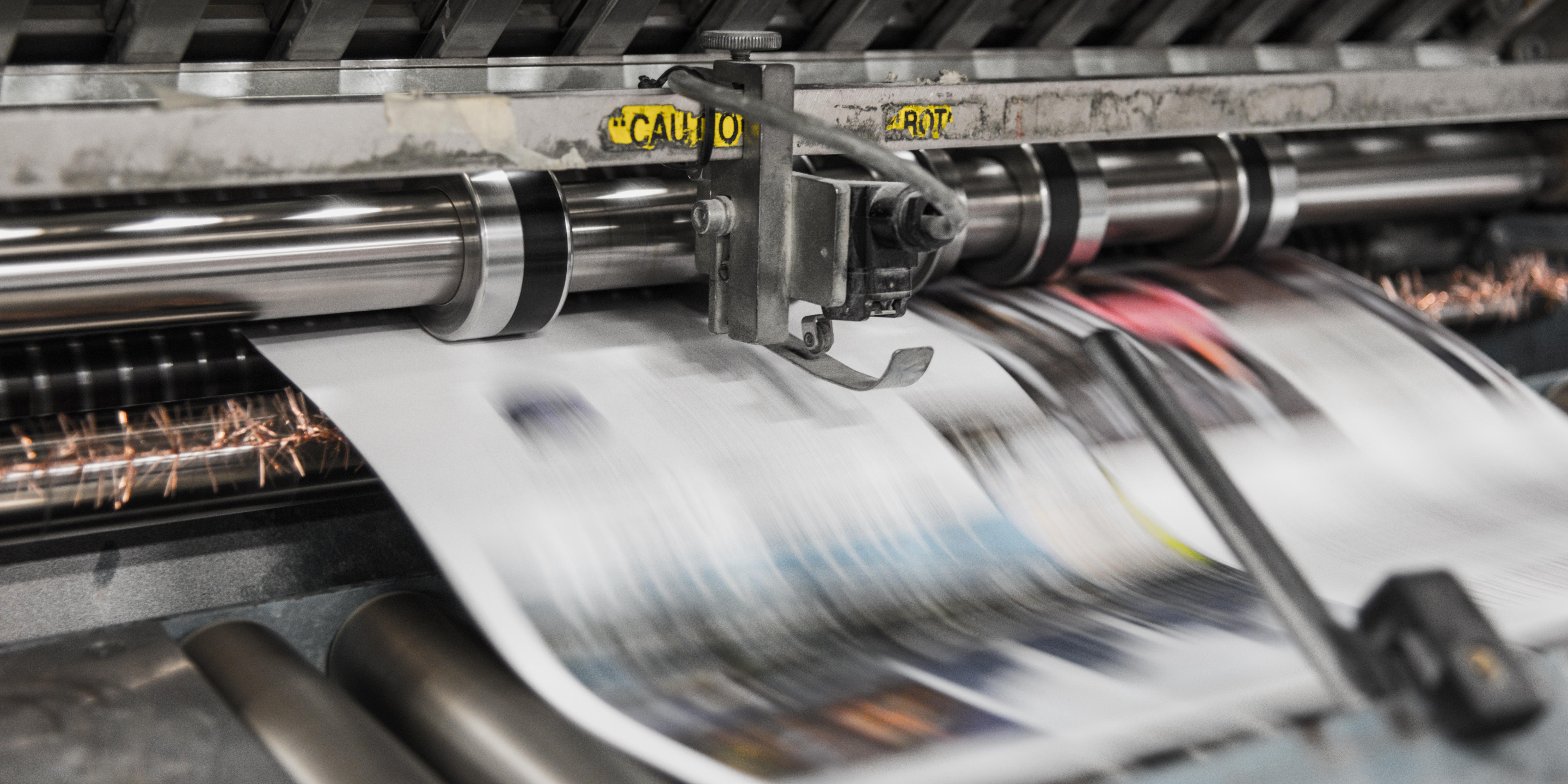 Primrose is a distinctly lower middle class area, a substantially racially mixed neighbourhood of modest houses – albeit bigger than the shacks. Together with famed local photographer Oscar Gutierrez, the author had used Google Earth to identify the actual location of the image, and then Gutierrez visited himself for a closer look, as the images in this story show.
Primrose is a distinctly lower middle class area, a substantially racially mixed neighbourhood of modest houses – albeit bigger than the shacks. Together with famed local photographer Oscar Gutierrez, the author had used Google Earth to identify the actual location of the image, and then Gutierrez visited himself for a closer look, as the images in this story show. 